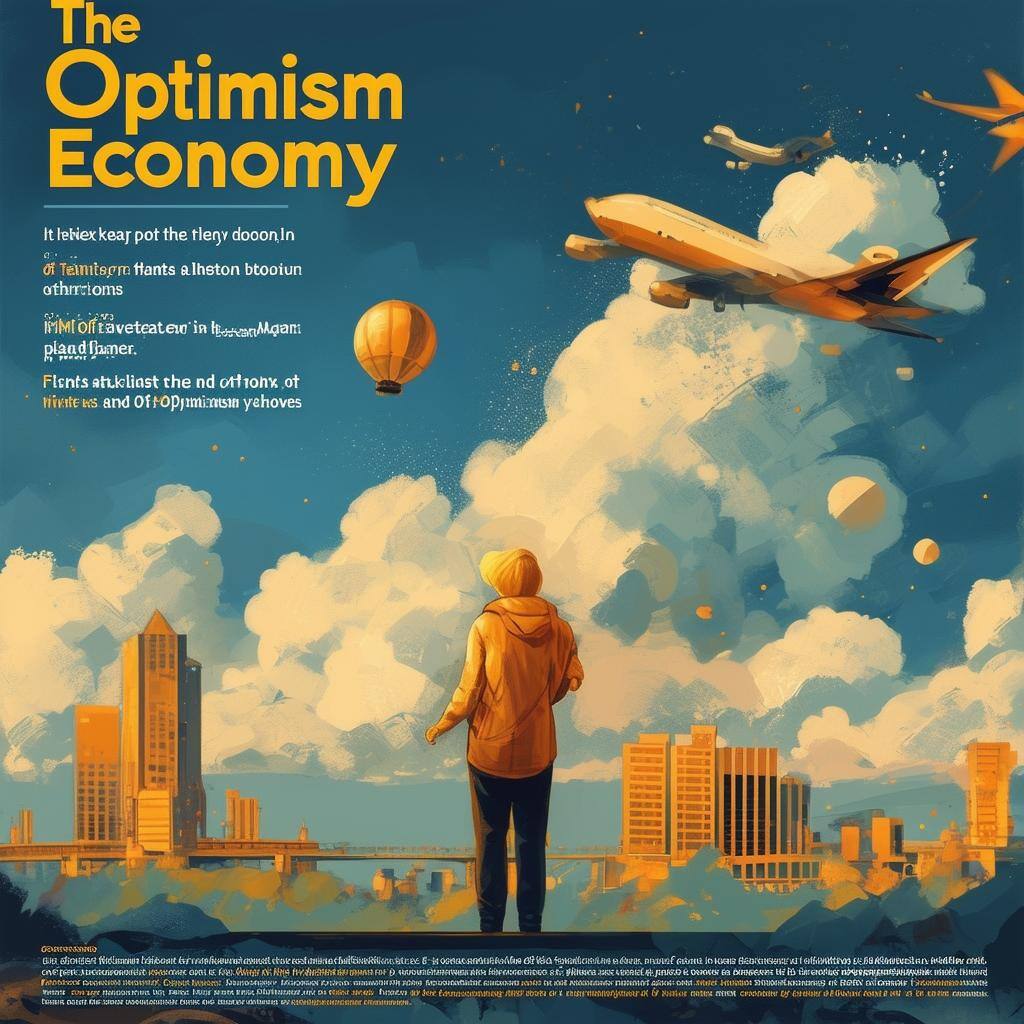How could optimism be the answer to life's most "pressing" questions?
It seems so trite. How could optimism be the "answer" to life's most "pressing" questions?
by Victor Perton
It seems so trite. How could optimism be the "answer" to life's most "pressing" questions?
This challenge, posed by a Sydney friend on Facebook, questions the Optimism Principle and captures a common scepticism about optimism: Can it truly address the weightiest questions of life?
The answer to life's most pressing questions is optimism.
That is the optimism principle.
My initial response to the question was simple: "Not trite. Concise." How do you synthesise ten years of research into one sentence? As a principle and practice, optimism is a potent, evidence-based answer to life's challenges because it equips us with the resilience, creativity, and purpose to confront adversity and inspire meaningful change.
Reducing a decade of research into a single sentence was a bold decision. As a Board member of Yarra Valley Water, I am reminded of one of our organisational values: "Be Brave for Positive Results." The Optimism Principle reflects this bravery. It could have been softened or worded differently, and perhaps one day it will evolve—but its essence remains a courageous statement of truth, offering a concise and transformative idea.

The Optimism Principle: More Than a Mindset
The Optimism Principle champions a positive perspective on future challenges and opportunities. By integrating this principle into the core practices of business and governance, leaders can inspire confidence, drive innovation, and manage change effectively. Optimism empowers individuals and organisations to envision and actively create a brighter future. It leads many from survival to thriving, turning adversities into opportunities and visions into realities. Optimism is a strategic asset in fostering positive change and achievement, robustly supporting personal, organisational, and professional excellence.
Why Optimism is More Than Hope
At its core, optimism is not about denying hardship but about bravely engaging with it. Viktor Frankl, the Holocaust survivor and psychologist, illustrated this in his essay on "tragic optimism." Frankl taught that even in the darkest circumstances, we can find hope, meaning, and purpose. For him, optimism wasn't about ignoring suffering but transforming it into a stepping stone for growth. This courageous and realistic optimism enables individuals to confront life's pressing questions with strength and resolve.
This same spirit of optimism was evident in Nelson Mandela's unwavering belief in reconciliation during his 27 years of imprisonment. Far from being blind to hope, Mandela's optimism was grounded in a practical vision of a united South Africa. He famously said, "Part of being optimistic is keeping one's head pointed toward the sun, one's feet moving forward." Similarly, the Dalai Lama urges us to embrace optimism as a choice, observing, "Choose to be optimistic, it feels better." For both leaders, optimism was a guiding principle that inspired action and resilience in the face of immense challenges.
The Science of Optimism: From Trite to Transformative
Research supports the transformative power of optimism.
The University of Sydney's "Optimism Effect" demonstrates how optimism drives national productivity and innovation. Optimistic nations and corporations invest more in research and development, businesses take calculated risks, and communities foster creative solutions.

We have developed a transformative concept: The Optimism Economy - a national framework where optimism is central to productivity, innovation, and sustainable growth. As The Centre for Optimism's Chief Economist Dr Anand Kulkarni said, “Optimism is the spark that lights human ingenuity, creativity and compassion.”

On an individual level, studies show that optimism enhances mental and physical health, improves relationships, and strengthens resilience, equipping people to navigate life's toughest challenges.
This evidence underscores that optimism is not a passive state of mind but an active force that drives meaningful action. It transforms fear into confidence, hesitation into innovation, and despair into purpose.
As the co-author of "The Optimism Principle", Robert Masters AM says, "Optimism is a ‘strategic asset’ for individuals, governments and businesses. The one-sentence reason is that ‘it envisions individuals, organisations and governments to create a brighter future in everything they do and plan’. No plan or policy is based on pessimism. The aim is always to achieve something better.
A Practical Philosophy for Life's Pressing Questions
The Optimism Principle is not about blind positivity. It is about recognising today's realities, envisioning a better tomorrow, and taking the actions necessary to bring that vision to life. Optimism equips us to ask not just, "Why is this happening?" but "What can I do to make it better?" It is a philosophy that transforms setbacks into opportunities, despair into hope, and inertia into innovation.
For example, in the face of global crises like climate change, optimistic leaders inspire collaborative action and galvanise communities to create solutions. Whether through the determination of individuals like Mandela, the hope embodied in Frankl's "tragic optimism," or the wisdom of the Dalai Lama, optimism has proven to be a resilient and transformative response to even the most complex questions.
Conclusion: Optimism is the Answer
Life's most pressing personal, societal, or global questions demand courage, persistence, resilience, creativity, and innovation. Optimism provides these tools. Far from being trite, the Optimism Principle distils a decade of research into one concise truth: optimism equips us to face adversity with strength, envision better futures, and take action to create them.
In crafting this principle, we were brave. We reduced the complexities of our research into a single, powerful statement, knowing that its clarity might invite challenge but would inspire action. The question, then, is not whether optimism can answer life's pressing challenges but how we can cultivate it in ourselves and inspire it in others. What makes you optimistic, and how will you use that optimism to shape a brighter world?


.png)
.png)
.png)

.svg)